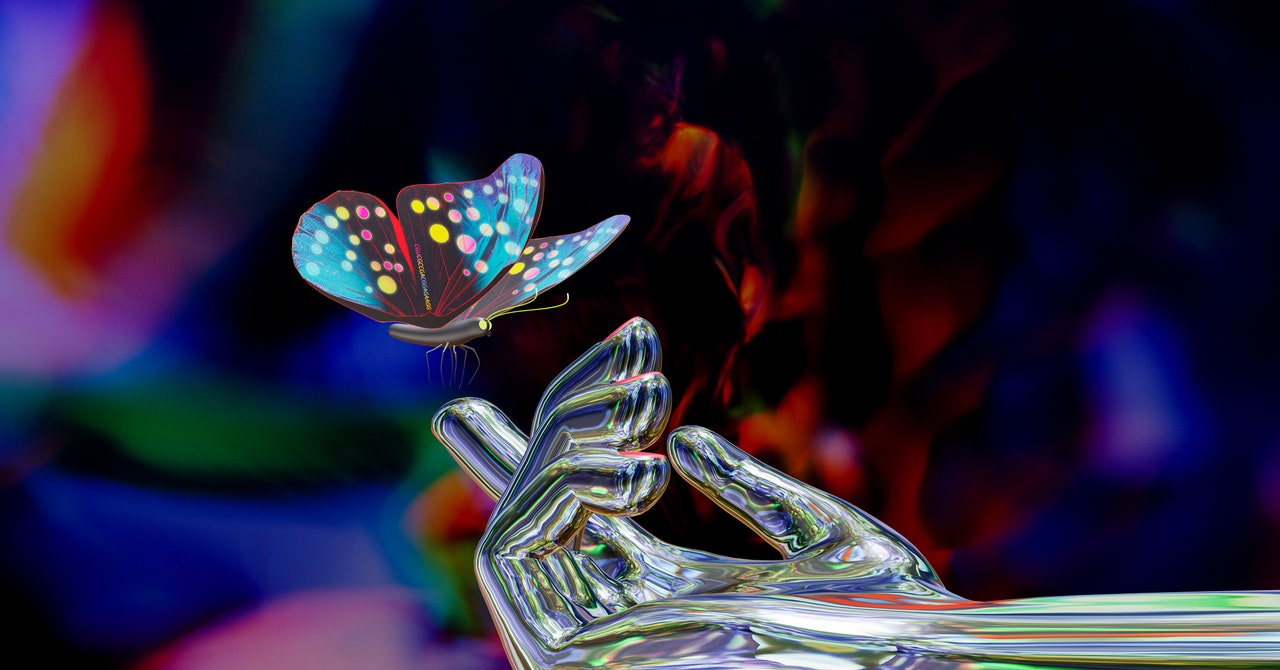AI dungeon, a text-based fantasy simulation running on OpenAI’s GPT-3 has been spawning weird stories since May 2019. Reminiscent of early text adventure games like Colossal cave adventurelets you choose from a range of formula settings – fantasy, mystery, apocalyptic, cyberpunk, zombies – before choosing a character class and name and generating a story.
Here was mine: “You are Mr. Magoo, a survivor trying to survive in a post-apocalyptic world by searching among the ruins of what is left. You have a backpack and a canteen. You haven’t eaten in two days, so you’re desperate for food.” Thus began Magoo’s 300-word weeping tale in which, “driven half mad” by hunger, he encounters “a man clad in white.” (Jesus? Gordon Ramsay?) Magoo offers him a greeting kiss and is stabbed in the neck.
As lame as this story is, it points to a gnarly copyright problem that the games industry is only just beginning to unravel. I made a story with my fantasy, but I used an AI helper for that. So who wrote the story? And who gets paid for the work?
AI dungeon was created by Nick Walton, a former researcher at a deep learning lab at Brigham Young University in Utah who is now the CEO of Latitude, a company that bills itself as “the future of AI-generated games.” AI dungeon is certainly not a mainstream title, although it has still attracted millions of players. As Magoo’s story shows, the player propels the story forward with action, dialogue, and descriptions; AI dungeon responds with text, like a dungeon master – or some kind of fantasy improv.
In several years of experimenting with the tool, people have generated much more compelling D&D-esque stories than mine, as well as videos like “I broke into the AI AI dungeon with my terrible writing. It has also sparked controversy, particularly when users began urging it to create sexually explicit content involving children. And if AI dungeon– and similar tools – evolve, they will raise more difficult questions about authorship, ownership and copyright.
Many games give you toolsets to create worlds. Classic series like Halo or Age of Empires include advanced map makers; Minecraft sparked an open, imaginative form of gameplay that The Legend of Zelda: Tears of the KingdomThe possibilities of Fuse and Ultrahand are clearly inspired by; others like To dream or robloxare fewer games than platforms that allow players to create more games.
Historically, claims of ownership of in-game creations or user-generated creations (IGCs or UGCs) have been challenged by “take it or leave it” end-user license agreements – the dreaded EULAs that no one reads. Generally, this means that players give up any ownership of their creations by turning on the game. (Minecraft is a rare exception here. It’s a EULA that has long given players ownership of their IGCs, with relatively few community freakouts.)
AI adds new complexities. Laws in both the US and the UK state that when it comes to copyright, only humans can claim authorship. So for a game like AI dungeonwhere the platform allows a player to essentially “write” a story using a chatbot, ownership claims can get murky: who owns the output, the company that developed the AI, or the user?

